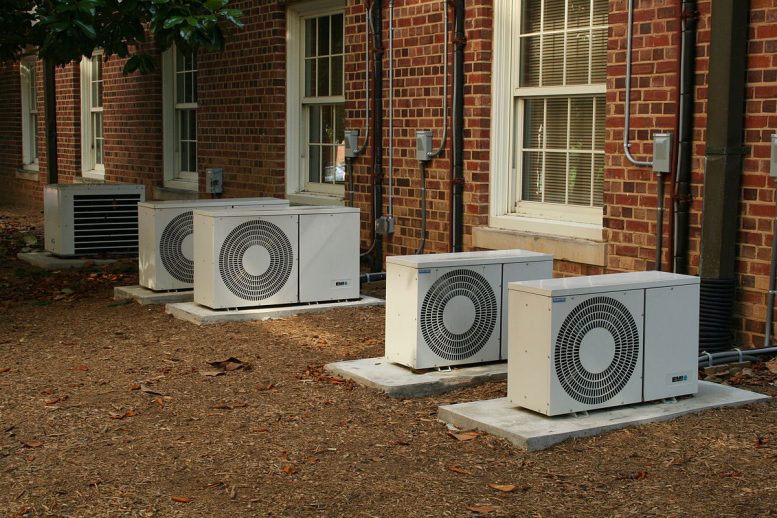Typically, we don’t think too much about the inner workings of our air-conditioning units, even as we enjoy the relief they bring on sweltering days. But Yale researchers have found that microbes are in abundance on the coils within A/C units – some more than others, depending on conditions.
The study, from the lab of Jordan Peccia, the Thomas E. Golden, Jr. Professor of Chemical & Environmental Engineering, was published in the journal Indoor Air. The unique environments of air-conditioning units – with their cold, alternating wet and dry conditions – are the kind that can promote the growth of a narrow range of microbes.
Temperatures and dew points, the researchers found, play a major role in how much bacteria and fungi were found on the coils of the air conditioning units.
“The moisture was a big deal,” said Alexa Bakker, first author of the study, and a Ph.D. student in Peccia’s lab. For instance, an A/C unit in California was likely to have fewer microbes than one in Connecticut, due to the lower humidity there.
Maintenance and equipment also played a significant role. “One of the things we also found is that the filters make a huge difference,” Bakker said. Filters with a higher minimum efficiency reporting value (MERV) allow fewer particles through. They’re more expensive but could be worth it if you don’t want a lot of microbes inside your air conditioning units.
The units they studied are the huge commercial kind that you can walk into, like those used at offices and schools, but Bakker said their findings likely relate to typical home units, too. To keep A/C microbes to a minimum, she suggests upgrading to higher quality inlet filters.
Previous studies have shown a higher proportion of illness among people who work in offices using central air conditioning. Reported symptoms are most often minor ones, such as the tightening of the chest and dry coughs, but exposure to air conditioners has also been linked to Legionnaire’s disease. The Peccia lab is looking further into this to get a better sense of the connection between air conditioning, health, and a building’s overall environment. They’re currently using air samples to look at how far into the building the microbes travel beyond the units themselves and making an analysis of exactly what kinds of microbes make their home inside air conditioning units.
Reference: “Building and environmental factors that influence bacterial and fungal loading on air conditioning cooling coils” by A. Bakker, J. A. Siegel, M. J. Mendell and J. Peccia, 30 May 2018, Indoor Air.
DOI:10.1111/ina.12474

1 Comment
I was plagued with sinus problems and post nasal drips the entire 43 years of working in A/C hospitals. The first 7 were in non A/C hospitals. Once I retired to my own house and own A/C I had neither problem. I do use expensive high quality filters and have the unit serviced annually.